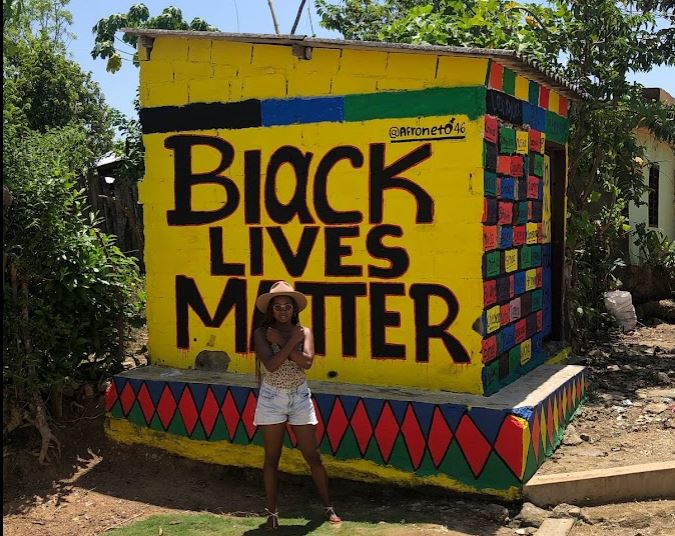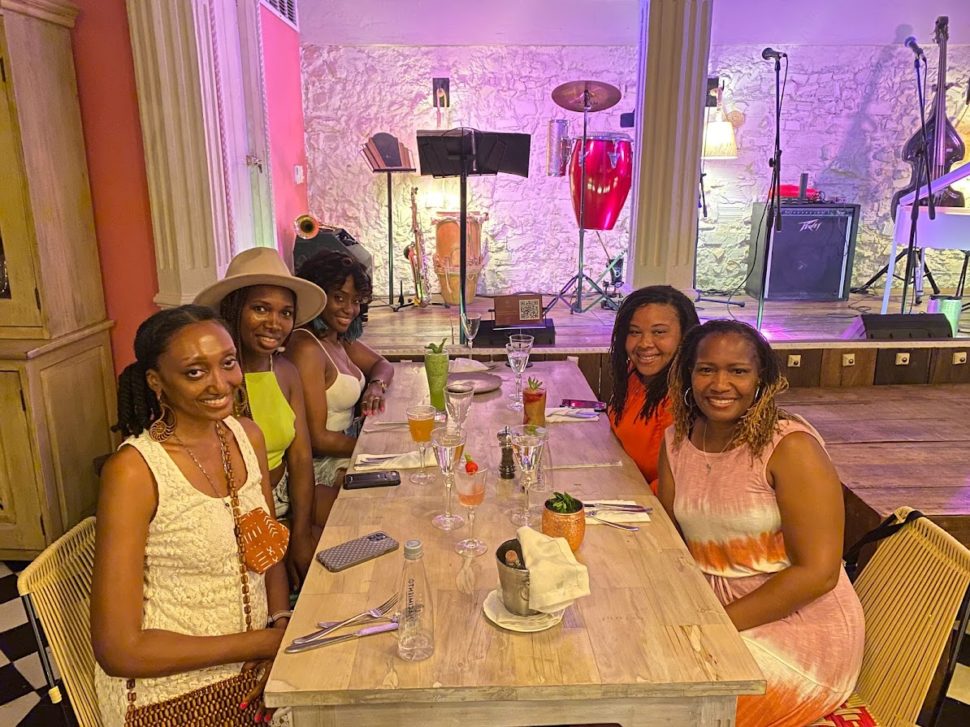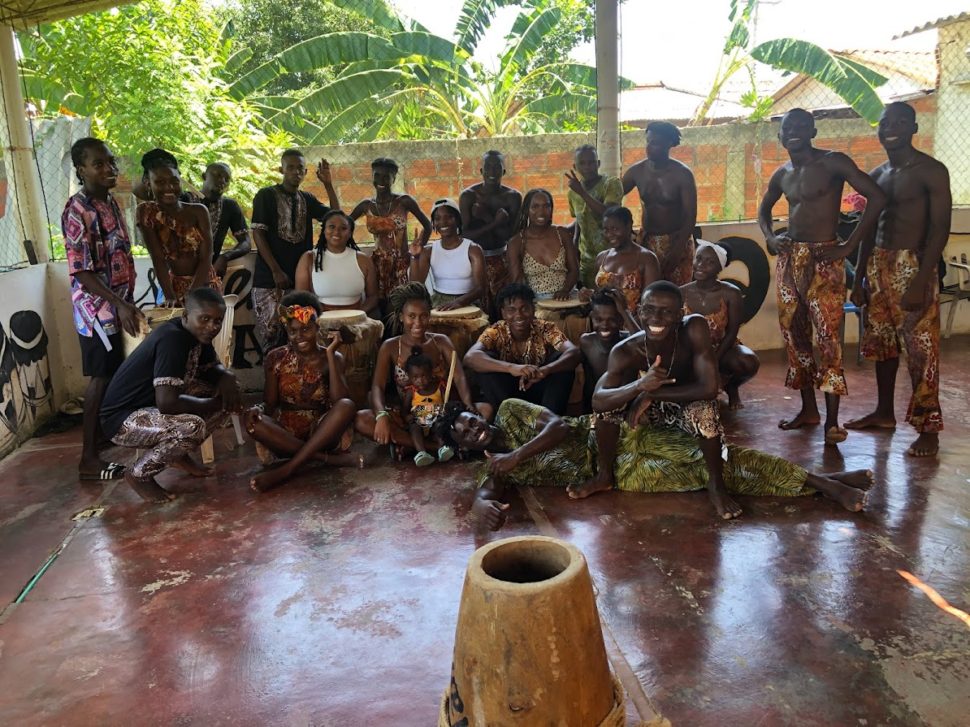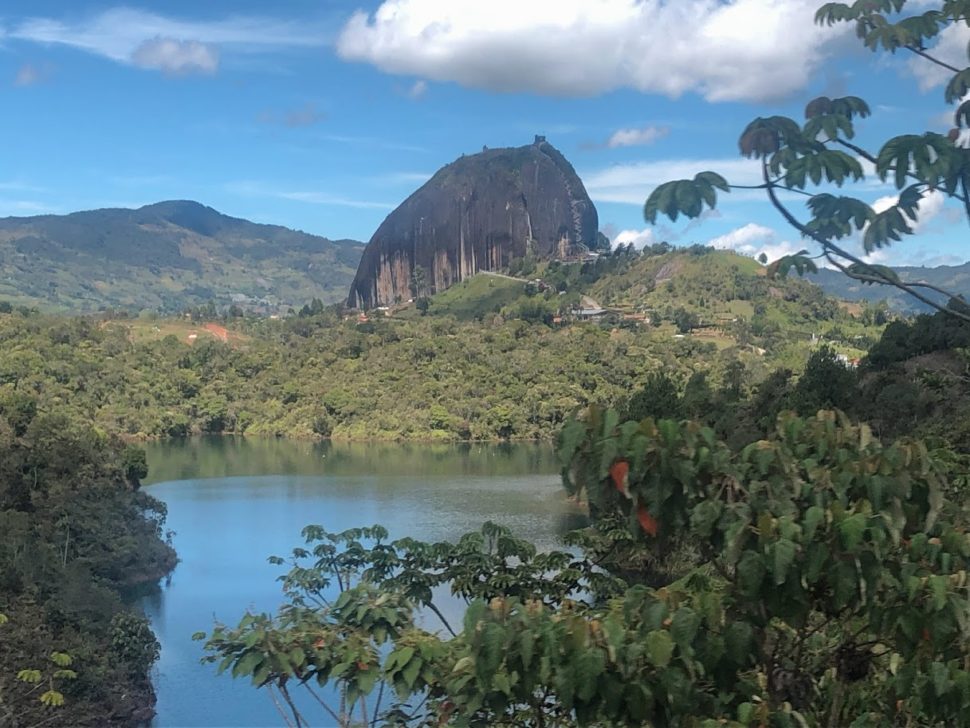It’s difficult to find fault in sticking to familiar terrain, considering how turbulent our world is. But if you can muster the courage, take that flying leap into the unknown, just as Larquana Bryan did during her month-long trip to Colombia alone this summer. She didn’t go with family, friends or work colleagues. She went alone.
“I was in the midst of a spiritual journey for personal growth, and was seeking a location where I could experience a new culture on a budget,” Larquana told Travel Noire. “I had to factor in locations that were accepting of American visitors, and Colombia stood out. It’s vibrant, but there’s also the paradox of its visible slave history.”
She’s an avid solo traveler, which not only allows her to explore at her own pace, but connect with her roots as a proud, Black woman.

“I intentionally set out to visit the original destinations of African slaves who underwent the forced migration of the Atlantic Slave Trade,” she said. “I like to trace their markings to understand their experience, and this examination makes me appreciate my Black identity more.”
Prior to traveling to Colombia alone, Larquana did meticulous planning, hoping to sidestep the worst of the racism and its devious relative, colorism. The internet gave her access to the information she needed to make her decisions, including blogs by Black women who toured Colombia alone. Once in the country, she connected with other Black travelers, and together they dined, danced and went to tourist attractions.
“I met a lot of Black women travelers while I was there,” Larquana gushed. “It was crazy that we all met up at the same time. We celebrated Black women and solidarity. We discussed wanting to break down the global stereotype that Black women aren’t adventurous or friendly. Our traveling collective showed that Black women are fearless and open to embracing new experiences and friendships.”

As an American, Larquana was held in higher esteem than Afro-Colombians. She noticed troubling similarities between how darker Colombians and Black people living in The United States were treated in their respective countries. Dislike and even hatred of dark skin was pervasive in subtle and overt ways.
“During the summer of 2021, Colombia put in place a midnight curfew due to COVID-19,” she said. “I always tried to get in on time, but I heard stories from Black people that when they stayed out late, the police stopped them and made them pay a bribe.”
The disparity was evident in work and social environments as well.
“Afro- Colombians were permitted to socialize and work in outside areas with high heat. White Colombians worked in areas that were air-conditioned, and they were permitted everywhere.”
Colombia is home to several groups of color, including indigenous people, and descendants of African slaves. But Larquana noticed a colorist hierarchy that prioritized Eurocentric features, while pushing anything outside that to the background. Sadly, she isn’t the first Black woman to make this observation.
Shahida Muhammad wrote for Blavity News, “Colombia is home to the third-largest population of Afro-descendants after Brazil and The United States, but you probably wouldn’t get that impression by flicking through local TV channels or the pages of magazines. Everything from television to billboard ads depicts Eurocentric images, which hardly mirrors the racial makeup of the people.”
Of Cartagena, Shahida added, “it’s estimated to be 70 percent Afro- Latino, but many of the dark-skinned Cartageneros work low-paying jobs. The socio-economic state of the city is very telling of how Afro-Colombians are prioritized in society.”
After two weeks in Colombia alone, the sun darkened Larquana’s skin. But instead of shying away from its rays, she embraced being perceived as an Afro-Colombian.

“I blended in with Black indigenous people and developed a pretty good accent,” she said. “I started to wear local Colombian clothing, and my initial interactions with locals changed. Upon looking at me, they became dismissive, and at times physically irritated my presence. But once they realized I was American, it quickly turned around.”
In addition to her race, Larquana had to consider her gender in her day to day.
“Traveling at night was a bit scary as a woman. I made sure to use Uber as much as possible to get home, instead of taking taxis. Also, I made a habit of charging my phone before going out. I rented an AirBnB for the month; a condo in a very safe and secure part of Bocagrande. Every morning I woke up to the water. The bay was less than a block away, and that was something I really wanted to experience.”
Was the condo expensive considering her length of stay? Actually, it was affordable.
“I used the monthly rate and got 25% off; spending less than $600 for rent and all utilities used,” Larquana explained. “I would recommend reaching out to your host to see if there are additional discounts that can be offered. You could find apartments and hotels for much cheaper, but it will likely be in less secure areas. I did travel a bit around Colombia, and it helped having a central location to avoid lugging all my stuff.”
Her itinerary included a long tour of Cartagena, and shorter excursions to the Rosario Islands, Palenque (the first free town of the Americas), Guatapé, and Medellín. All were memorable, but Medellín and Guatapé stood out.
“Medellín was a great stop, and I wished I stayed longer,” Larquana said. “It’s so vibrant; like a mix of New York and Europe. There’s great nightlife and food fusion. The cable cars allowed for a scenic ride over the mountains. Graffiti is big there, and it was the home of Pablo Escobar.”
The town of Guatapé, just two hours outside of Medellín, has arresting beauty. The most famous attraction is El Peñon de Guatapé, an inselberg with 650 steps to the top. Larquana climbed them all, and the fabulous view was well worth every bead of sweat.

She learned a great deal about herself in Colombia alone, and intends to visit again. She believes the education you gain from travel can’t be replicated in any other way.
“There is still some hesitation about overseas travel, especially to developing countries. I want to help dismantle those fears. For Black and brown people, travel helps us learn about ancestral journeys and our impact on the world. Whether you travel alone or in groups, do it to reach a higher altitude of yourself.”
Follow Larquana’s various adventures on Instagram @lolafuchsia





